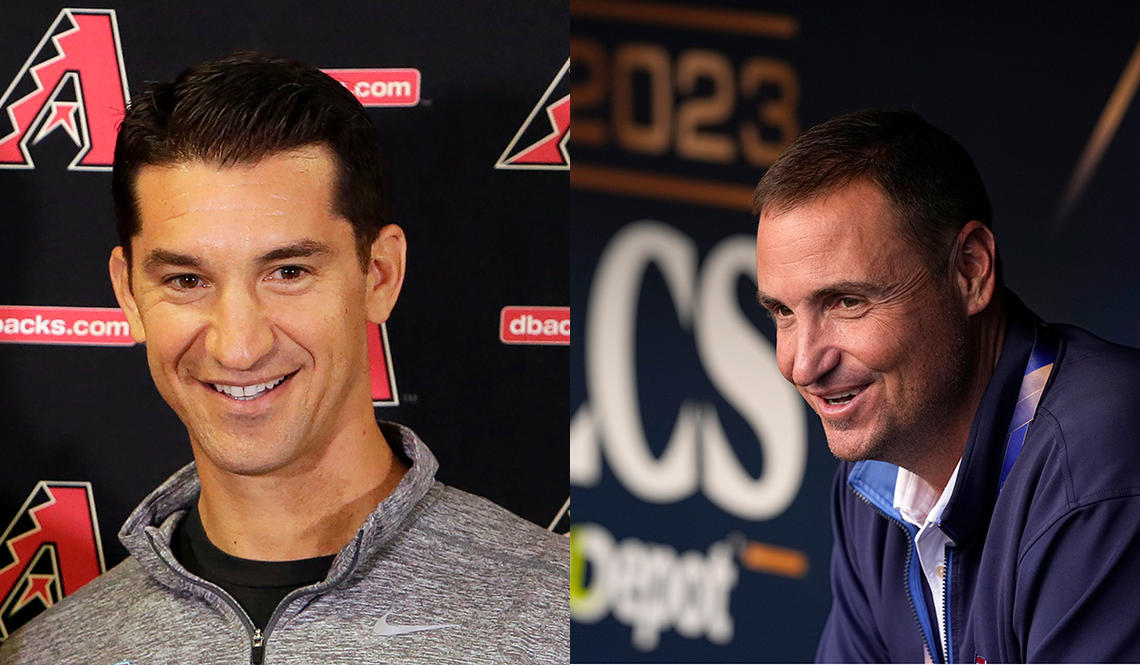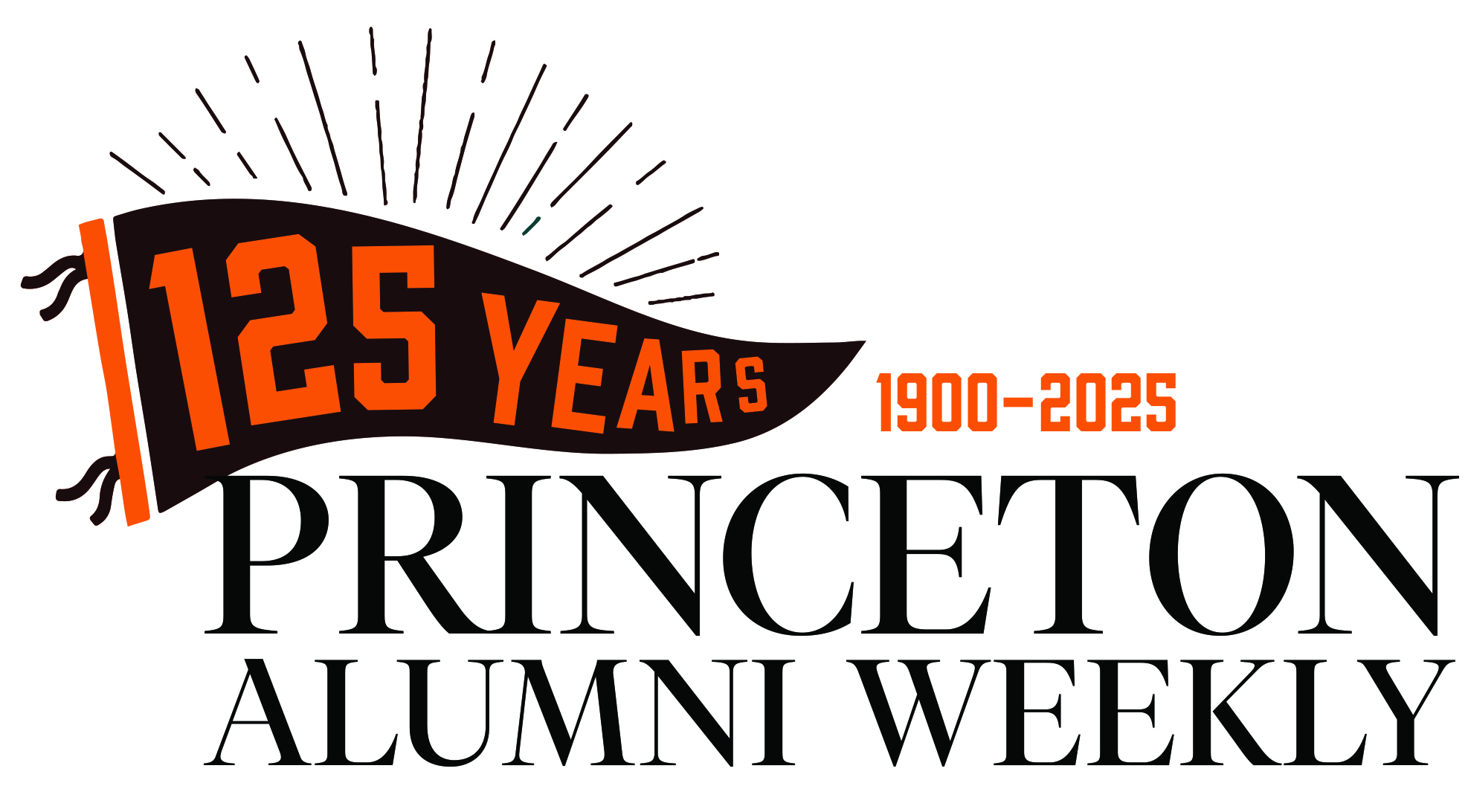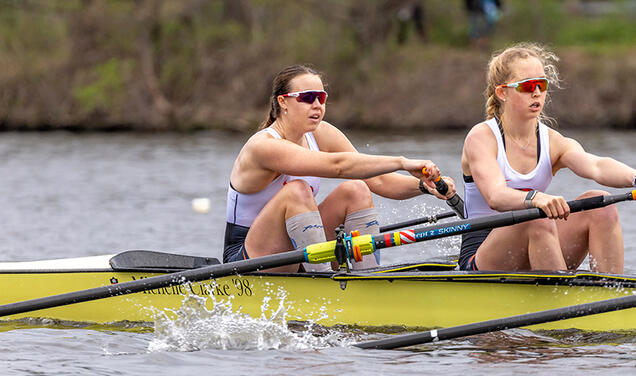Mike Hazen ’98 and Chris Young ’02 Give World Series a Princeton Feel
Former Tiger baseball players are now leading the Arizona Diamondbacks and the Texas Rangers, and even invited longtime coach Scott Bradley to Game 1

Chris Young ’02 had just been dealt the toughest loss in his tenure as a baseball executive. Yet in that moment, after his Texas Rangers gave up a ninth-inning home run in a pivotal American League Championship Series Game 5 on Oct. 20, Young, general manager of the Rangers, took a moment to think of a friend experiencing one of his highs.
Mike Hazen ’98, his counterpart helming the Arizona Diamondbacks, just enjoyed a rousing victory over the favored Philadelphia Phillies in the National League Championship Series when a message popped up from Young.
“We had just won a very emotional Game 4,” says Hazen. “And he sent us a congratulatory text message and I went around to our guys and I was like, ‘Who does this?’ And they asked, ‘Would you have done this?’
“Probably not. But that’s who he is as a human being. I’ll say it: We were very fortunate to be able to attend a really good institution that fostered a lot of relationships that I have until this day.”
That relationship took a new turn days later, when Young and Hazen squared off in a World Series in which the chief baseball officers from both clubs hailed from Princeton.
Young’s Rangers prevailed, winning the best-of-seven-game World Series 4-1 and wrapping it up with a 5-0 victory in Game 5 at Chase Field in Phoenix, Arizona. Amid the stadium’s champagne-soaked visitor’s clubhouse, Young, his 6-foot-10 frame looming above the debauchery, spoke of a Texas franchise tired of losing and its willingness to acquire premium talent to end 63 years without a championship.
“I don’t know,” says Young, “if we spoke it into existence.”
Young and Hazen know where their baseball acumen is rooted. And that’s why a special guest was summoned to Globe Life Field in Arlington, Texas, for Game 1: Scott Bradley, the Tigers baseball coach who just completed his 25th year at the school.
“I’m not here without Scott,” says Hazen. “And so Chris and I had him come in as a thank you to be here to watch.”
Young concurs. He is a rarity in athletics, a two-sport star who, at 44, looks like he could still pitch several key innings or battle with the bigs under the basket. He calls Princeton “a tight-knit community and a very special place,” a rare opportunity to develop his baseball, basketball, and academic skills.
Athletes, he says, “got no favors” there, the rigor sharpening both his mind and his ability to compartmentalize tasks.
It was Bradley, he says, who provided a key nudge toward baseball.
“He believed in me, that I had potential beyond college,” says Young. “He said don’t be limited just thinking you’re a college baseball player — that there’s a career beyond this for you if that’s what you want to do.
“That belief is important. Sometimes you don’t know how good you are until someone tells you. His confidence and the belief he instilled in me helped get me there.”
Young was eventually selected in the third round of the 2000 Major League Baseball draft by the Pittsburgh Pirates, traded to the Rangers in 2004 and then the San Diego Padres in 2006, where he played one year for the man who’s now his manager in Texas, Bruce Bochy.
“It’s a school where people who are highly driven and highly capable want to go and get better. You combine that with the program that Coach Bradley has, which is very professional. I don’t think [it] has a lot of the components other colleges do — basically it’s run like a professional team.
— Will Venable ’05
Texas Rangers associate manager
Meanwhile, a sea change was occurring in baseball, where a Moneyball-driven tilt toward executives with backgrounds in finance and other fields began superseding those with on-field experience.
By the time Young’s playing career ended in 2017, he was a rare commodity: An Ivy League-educated mind with the credibility that pitching a dozen years in the major leagues brings.
Now, he and Hazen assembled World Series teams. In the Rangers dugout, associate manager Will Venable ’05, who like Young played both sports at Princeton, is a prized managerial commodity.
“It’s a school where people who are highly driven and highly capable want to go and get better,” says Venable, who lauds Young’s “clarity of vision” and culture of accountability. “You combine that with the program that Coach Bradley has, which is very professional. I don’t think [it] has a lot of the components other colleges do — basically it’s run like a professional team.
“It’s a really good foundation for people who are involved with baseball at Princeton to continue on to do things in the industry.”
And somehow it all comes back to campus.
Young eventually had to choose a path — baseball or basketball. Yet nearly a quarter-century after he excelled at both sports, he found those paths intertwined.
It was late March and Young had big decisions to make: who made the major league club and who got sent to the minors. Yet Princeton’s men’s basketball team was competing in the Sweet 16 round of the NCAA Tournament.
What’s a 6-foot-10 former center and right-handed pitcher to do?
The day job won out. Young stuck around spring training camp and joined Venable as they agonized through the Tigers’ Sweet 16 loss to Creighton.
Still, Princeton made a few fans along the way — Bochy among them — as coach Mitch Henderson ’98’s squad shocked No. 2 seed Arizona and No. 7 seed Missouri.
“I wanted so bad to be at the Sweet 16,” says Young. “I felt like a kid missing Christmas, but it was the last day of spring training, we had cuts to make, and I didn’t feel like it was appropriate for me to leave and leave those cuts to other people.
“Will and I watched it and were jumping and screaming together. I was on texts with so many friends. But most important, so happy for those athletes and beyond happy for Mitch — he’s such a good person, such a winner, and the impact he’s made on so many peoples’ lives that he doesn’t even realize.”
Young experienced a full-circle moment when he invited Henderson to visit the Rangers this year, the current coach of his alma mater swapping knowledge and appreciation with Bochy, one of his first major league managers.
And it just doesn’t stop. Hazen, 47, who preceded Young by three years at Princeton, is simply another reminder of the years that molded him. Only one man couldn’t lose: Bradley, the coach who molded them all.











0 Responses